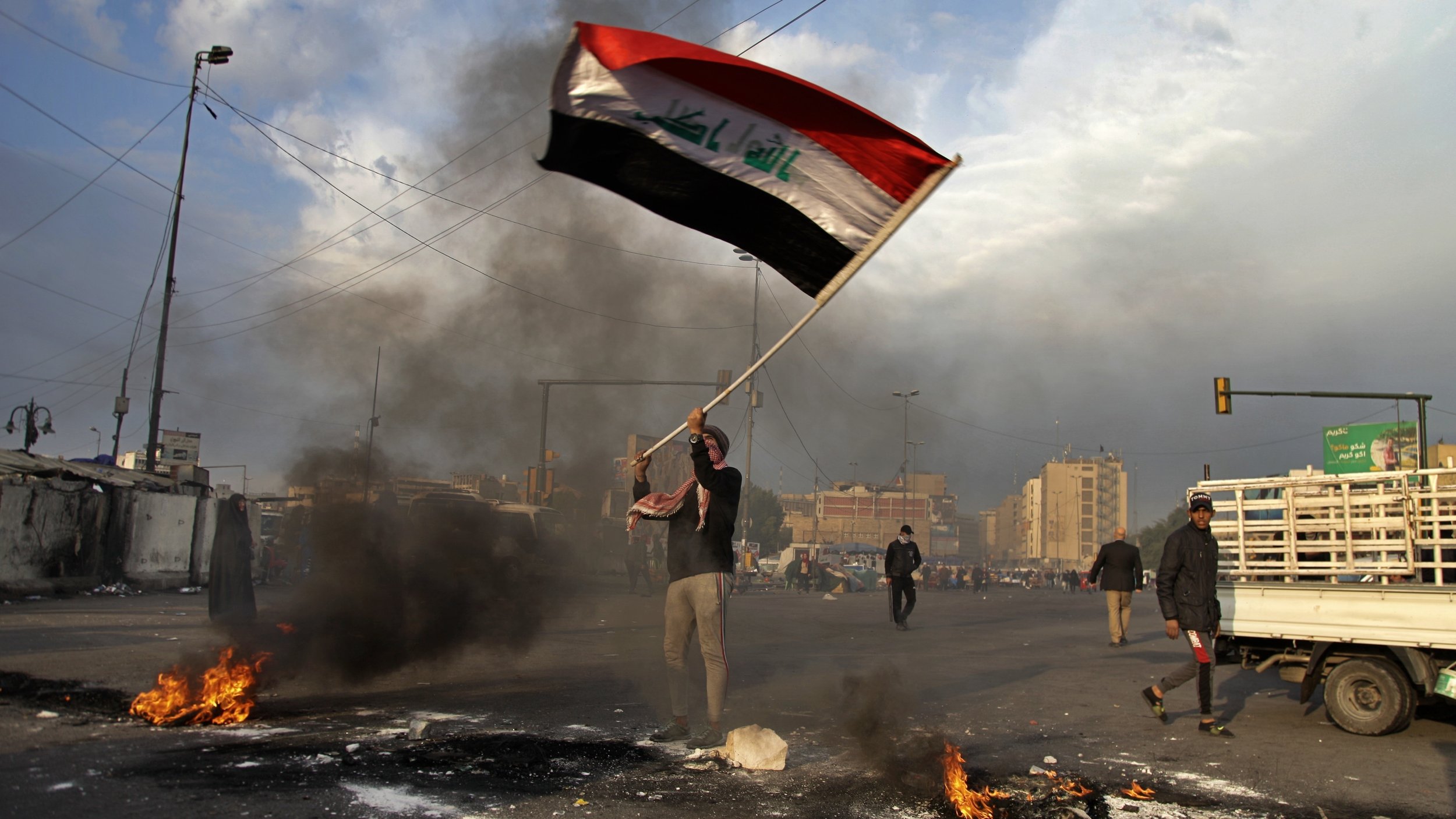Not the End of ‘Shadow Wars’
Photo via Associated Press
ALESSIA COLUCCIO: Media headlines describe Iran’s missile attack on Israel as “unprecedented,” ending decades of “shadow wars” between the two nations. Yet, after Israel’s most recent retaliatory strike, it is clear these direct missile attacks are not a precursor to a conventional war, but rather a continuation of shadow war, centered on sending a message rather than inflicting physical damage.
On April 1st, Israel’s military allegedly struck the Iranian consulate in Damascus in a missile strike, killing Iranian Brigadier General Mohammad Reza Zahedi and his deputy General Mohammad Hadi Hajriahimi. Immediately, Tehran voiced its intention to defend itself through retaliation, worried not responding would indicate weakness in the eyes of its adversaries. However, despite Iran’s capabilities to inflict damage on strategic Israeli targets, it opted to signal its ability to strike rather than actually doing so, implying its intention to merely respond to Israel’s attack, not escalate a regional conflict.
The Islamic Revolutionary Guard Corps’ Aerospace Force launched 330 missiles and drones over Israel on April 13th in, what they called, “Operation True Promise.” With the help of United Kingdom and United States backed aerial defense systems, Israel was able to shoot down 99% of the incoming missiles. Only minimal damage was inflicted on an Israeli air base and the sole casualty was a seven year old girl.
Instead of covertly launching missiles, the Iranian foreign minister Hossein Amir-Abdollahian notified countries, including the U.S., 72 hours in advance of its attack, allotting time for defense preparations. It is because of this advance notice that President Biden returned early from his house in Rehoboth Beach, Delaware to meet with top staffers in the White House Situation room, telling the press an attack by Iran on Israel “could happen sooner than later.”
Since Iran provided advance notice of the attack, it is clear they did not intend to inflict maximum damage on Israeli soil. Instead of launching their air strike without warning, they gave their Israel and its allies three days to prepare, implying their primary goal was to showcase their military capability.
Several Iranian missiles reached Jerusalem before their interception, demonstrating Iran’s ability to strike key targets. Footage shows rockets shot down over the al-Aqsa Mosque, one of Islam’s holiest shrines, the Israeli Parliament and high-rise apartments, signaling Iran’s destructive capability if further provoked.
On April 19th, Israel retaliated to this attack mildly due to pressure from President Biden and the international community to not further escalate a wider regional conflict. Prime Minister of Israel Benjamin Netanyahu initially approved a more drastic response, but three voting members of the war cabinet ruled out a strategic strike on Iran's nuclear facilities.
Ultimately, Israel carried out an aerial attack on an Iranian Air Force base near the city of Isfahan, deep within Iran’s borders and close enough to nuclear facilities to send a message without inflicting damage. Like the strike conducted by Iran, Israel’s primary goal was to demonstrate its willingness to use force when attacked and its capability to hit strategic targets, two primary components of deterrence theory.
In the aftermath of Israel’s attack, Tehran played down the incident. Foreign Minister Amir-Abdollahian stated the drones launched by “infiltrators,” not explicitly naming Israel, were “mini-drones,” inflicting no damage or casualties. Iran’s response appears to signal an end to the explicit exchange of fire between the two nations.
However, this does not indicate an end to Israel and Iran’s shadow wars. Iran has a regional network of allies, and is known to fund anti-semetic terror groups such as Hamas, Hezboullah, and the Houthis. Since the start of the Israel-Hamas war, Hezboullah has fired rockets into northern Israel territory and the Houthis have attacked Western ships in the Red Sea. Even though the direct conflict between Iran and Israel has seemingly come to a close, there is no indication these proxy strikes will end in the near future.
Alessia Coluccio is a Staff Writer for On the Record from Brooklyn, New York. She is a sophomore in the College studying government with minors in Journalism and Science, Technology, and International Affairs.

